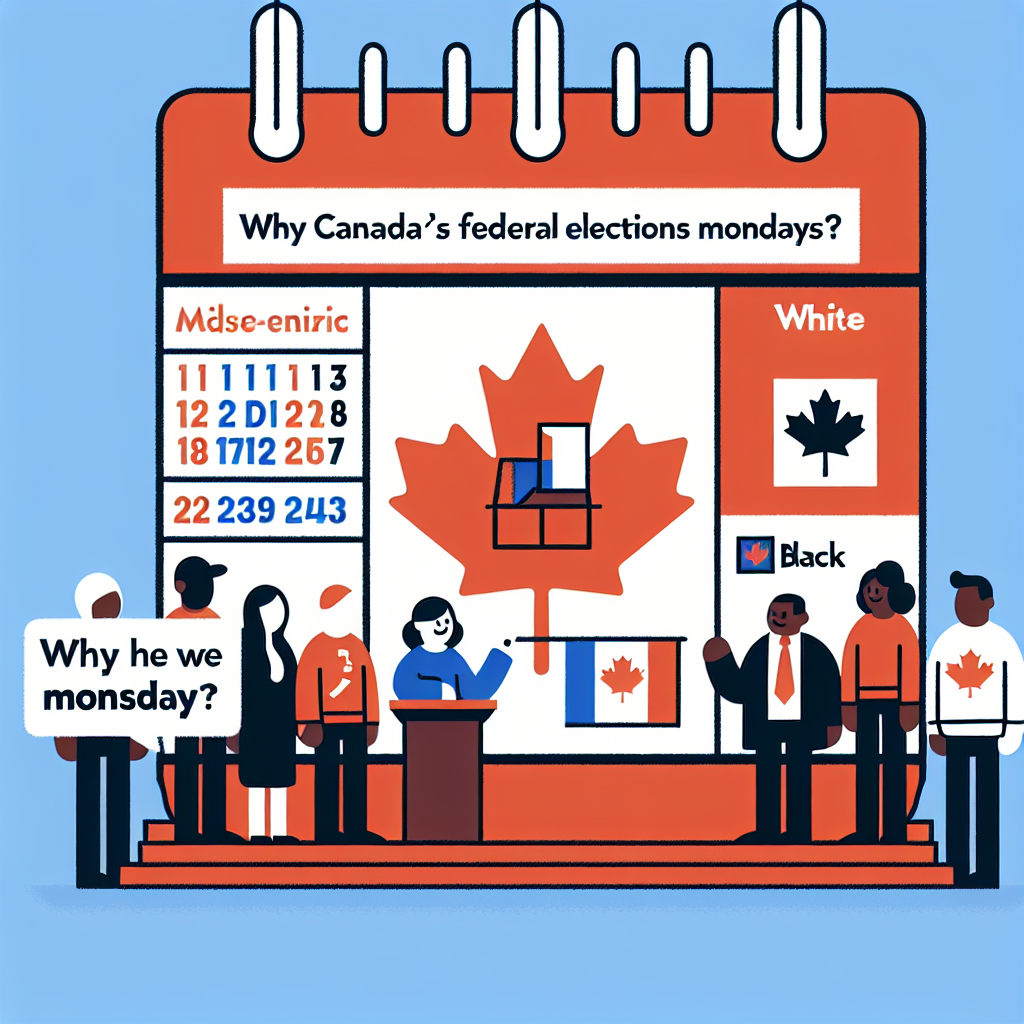Why Are Canada’s Federal Elections Scheduled on Mondays?
Why Are Canada’s Federal Elections Scheduled on Mondays?
Historical Context and Tradition
Canada’s choice to hold federal elections on Mondays is deeply rooted in tradition and historical practices. This scheduling decision is influenced by a combination of logistical considerations and societal norms that have evolved over time.
Key Reasons for Monday Elections
- Weekend Preparation: Holding elections on a Monday allows for the weekend to be used for final preparations, ensuring that polling stations are ready and staff are adequately briefed.
- Voter Convenience: Mondays are seen as a day when most people are settled back into their weekly routines, potentially increasing voter turnout compared to weekends when people might be traveling or engaged in leisure activities.
- Historical Precedent: The tradition of Monday elections dates back to the early 20th century, establishing a consistent pattern that voters have come to expect.
Impact on Voter Turnout
While the choice of Monday is intended to maximize voter participation, it also raises questions about accessibility for certain demographics, such as those with inflexible work schedules. Efforts to accommodate these voters include advance voting days and mail-in ballots.
Comparative Perspective
Unlike Canada, other countries have different approaches to election scheduling. For instance, the United States typically holds elections on Tuesdays, while some European countries prefer weekends. These variations reflect differing cultural and logistical priorities.
Conclusion
Canada’s tradition of scheduling federal elections on Mondays is a blend of historical precedent and practical considerations aimed at facilitating voter participation. While this approach has its advantages, ongoing discussions about accessibility and voter turnout continue to shape the conversation around election scheduling.














